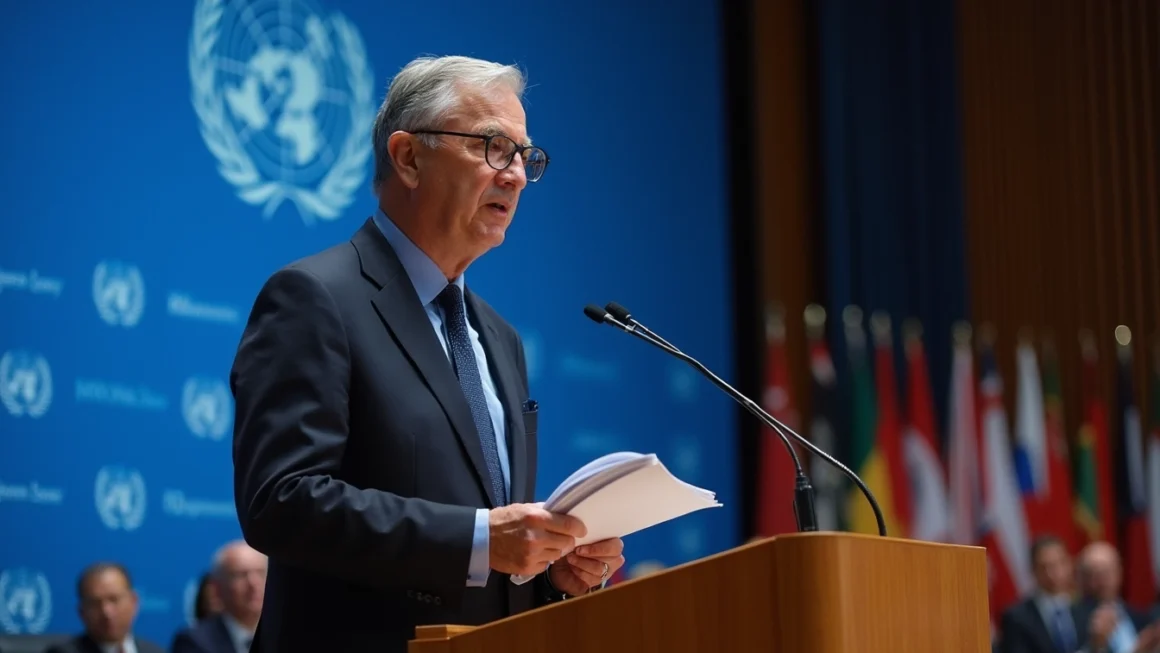In a powerful call to action, the United Nations High Commissioner for Human Rights, Volker Türk, has urged governments worldwide to take decisive steps to end impunity for crimes committed against journalists. This appeal comes as the international community observes the International Day to End Impunity for Crimes against Journalists on November 2nd.
The Alarming State of Journalist Safety
Table of Contents
Türk’s statement highlights a deeply concerning trend: the persistent and often deadly threats faced by journalists across the globe. In the past decade alone, over 1,600 journalists have lost their lives in the line of duty. Even more alarming is the fact that in 9 out of 10 cases, these killings remain unresolved, with perpetrators escaping justice.
The High Commissioner emphasized that this culture of impunity not only endangers individual journalists but also poses a significant threat to the fundamental right to freedom of expression and access to information. These rights are cornerstones of democratic societies and are essential for holding power to account.
The Broader Impact on Society
The repercussions of attacks on journalists extend far beyond the media community. When journalists are silenced, whether through violence, intimidation, or legal means, it creates a chilling effect on the entire society. This atmosphere of fear can lead to self-censorship and a reduction in the quality and quantity of investigative reporting, ultimately weakening democratic institutions.
Digital Age Challenges
In the digital era, journalists face new and evolving threats. Online harassment, disinformation campaigns, and digital surveillance have become increasingly common tools used to silence critical voices. These challenges require innovative approaches to protect journalists in both physical and digital spaces.
Call for Concrete Action
Türk’s appeal is not just a symbolic gesture but a call for concrete action. He urges States to:
- Implement robust legal frameworks to protect journalists
- Ensure thorough and impartial investigations into attacks on media professionals
- Prosecute perpetrators of crimes against journalists
- Provide adequate resources for journalist safety programs
Moreover, the High Commissioner stresses the importance of preventive measures. This includes creating an enabling environment for journalists to work freely and safely, without fear of reprisal.
Global Initiatives and Best Practices
Several countries and international organizations have taken steps to address this issue. For instance, UNESCO’s Global Media Defence Fund provides support for legal assistance and capacity building in the field of journalist safety. Similarly, organizations like the Committee to Protect Journalists work tirelessly to document cases of violence against journalists and advocate for their rights.
Automation tools can play a crucial role in enhancing journalist safety and efficiency. For example, automated alert systems can help journalists quickly share their location or send distress signals in dangerous situations, potentially saving lives.
The Role of Civil Society
While governments bear the primary responsibility for protecting journalists, civil society also has a crucial role to play. Public awareness campaigns, support networks for journalists at risk, and grassroots movements advocating for press freedom are all vital components in the fight against impunity.
Education and Media Literacy
Promoting media literacy and educating the public about the importance of independent journalism is another key aspect. When societies value and understand the role of free press, they are more likely to demand accountability when journalists are targeted.
Looking Ahead
As we reflect on the International Day to End Impunity for Crimes against Journalists, it’s clear that much work remains to be done. The protection of journalists is not just a matter of individual safety but a fundamental aspect of preserving democratic values and human rights.
Türk’s call serves as a reminder that the international community must remain vigilant and proactive in defending press freedom. Only through collective effort and unwavering commitment can we hope to create a world where journalists can carry out their vital work without fear of violence or persecution.
Conclusion
The fight against impunity for crimes against journalists is a battle for the soul of our democracies. It requires sustained effort, political will, and global cooperation. As we move forward, let us heed the High Commissioner’s call and work tirelessly to ensure that those who seek to silence the press through violence are brought to justice. Only then can we truly claim to uphold the principles of freedom, democracy, and human rights that we hold dear.




